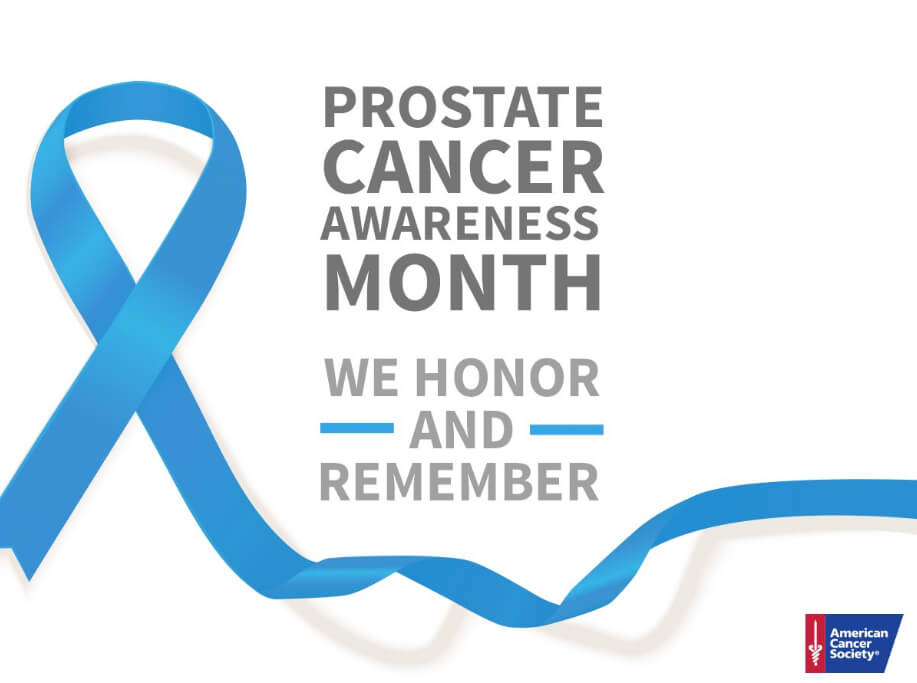Prostate Cancer Awareness Month: An Opportune Time to Discuss Screening
September is Prostate Cancer Awareness month. Prostate cancer is a cancer that occurs in the prostate, a small gland near the bladder in men that makes fluid to carry sperm. According to the American Cancer Society, prostate cancer is the seconding leading cause of cancer death in U.S. men. However, if diagnosed early, the five-year survival rate is almost 100 percent.There are multiple ways that patients can be screened for prostate cancer including a digital rectal exam, where a doctor or nurse examines the prostate to feel for abnormalities or lumps, and the Prostate-Specific Antigen Test (PSA) that measures the level of PSA in the blood. PSA is a substance made by the prostate and may be higher in men who have prostate cancer. However, PSA can also rise due to non-cancerous conditions, contributing to the risk of false positives for prostate cancer.

In 2012, the U.S. Preventive Services Task Force (USPSTF) recommended against routine PSA screening for prostate cancer, concluding that the expected harms of PSA screening are greater than the potential benefit. USPSTF is an independent group of medical professionals that reviews evidence on preventive health care services. That conclusion has been harshly criticized by organizations such as the American Urological Association, which has its own guidelines for screening.A recent JAMA Oncology Study concluded that diagnoses of early prostate cancer in American men aged 50 and older dropped by 19 percent between 2011 and 2012 and by another 6 percent the following year. While the findings seem encouraging, they may have a dark side: the possibility that men are being diagnosed at later stages of cancer because earlier cancers were missed due to less PSA screening.Some experts worry that due to USPSTF’s PSA screening guidelines, more men will develop potentially fatal prostate cancer due to a delayed diagnosis.These guidelines and diagnosis trends can be confusing for patients, who want to make informed decisions about their healthcare. The American Cancer Society recommends that patients speak with their healthcare provide to discuss the benefits and risks of PSA screenings. After these discussions, men who would like to be screen can opt for a PSA screening along with the digital rectal exam.As scientists continue to search for new screening tools, men are encouraged to speak with their healthcare providers about family history of prostate and other cancers, so that they can chose to make the best decision for them.
http://www.cancer.org/cancer/prostatecancer/detailedguide/prostate-cancer-survival-rates

In 2012, the U.S. Preventive Services Task Force (USPSTF) recommended against routine PSA screening for prostate cancer, concluding that the expected harms of PSA screening are greater than the potential benefit. USPSTF is an independent group of medical professionals that reviews evidence on preventive health care services. That conclusion has been harshly criticized by organizations such as the American Urological Association, which has its own guidelines for screening.A recent JAMA Oncology Study concluded that diagnoses of early prostate cancer in American men aged 50 and older dropped by 19 percent between 2011 and 2012 and by another 6 percent the following year. While the findings seem encouraging, they may have a dark side: the possibility that men are being diagnosed at later stages of cancer because earlier cancers were missed due to less PSA screening.Some experts worry that due to USPSTF’s PSA screening guidelines, more men will develop potentially fatal prostate cancer due to a delayed diagnosis.These guidelines and diagnosis trends can be confusing for patients, who want to make informed decisions about their healthcare. The American Cancer Society recommends that patients speak with their healthcare provide to discuss the benefits and risks of PSA screenings. After these discussions, men who would like to be screen can opt for a PSA screening along with the digital rectal exam.As scientists continue to search for new screening tools, men are encouraged to speak with their healthcare providers about family history of prostate and other cancers, so that they can chose to make the best decision for them.
http://www.cancer.org/cancer/prostatecancer/detailedguide/prostate-cancer-survival-rates
Buy your own lab tests
Shop online for a Colorectal Screening (FIT) Home Collection Kit - no doctor visit required for purchase





